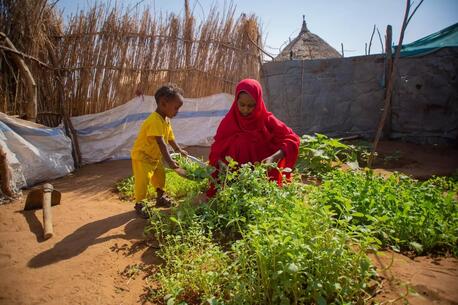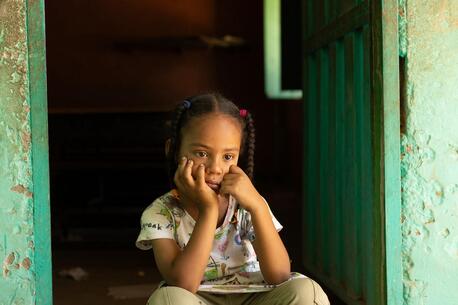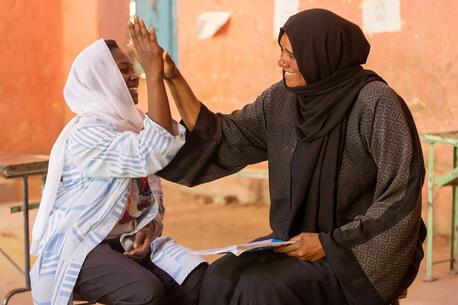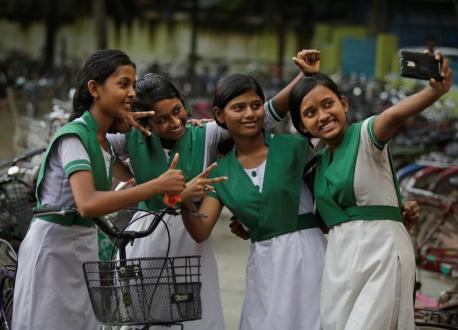
Children's Rights and Business
Business and COVID-19
Businesses have an important role to play in protecting children's rights during the COVID-19 pandemic. UNICEF encourages companies to consider children in their response and business decisions in the days, weeks and months ahead. UNICEF and partners have developed initial recommendations on:
How employers can strengthen support for families and employees can leverage the new Intrapreneurship Guide during the pandemic.
Protecting children online, with more than 1.5 billion children around the world out of school and relying on digital solutions.
UNICEF USA has also considered what the outbreak tells us about the importance of family-friendly policies in the United States.
Better business for children
UNICEF and UNICEF USA are seeking to change business behavior and practices as they affect children by collaborating with a range of stakeholders, including companies, governments, civil society, children and young people.
Our work is based on the Child Rights and Business Principles, which outline the private sector’s responsibilities to children in the workplace, the marketplace, the community and the environment.
Integrating children's rights into business practices creates positive impact in many arenas — via a "virtuous" cycle — for children and their families
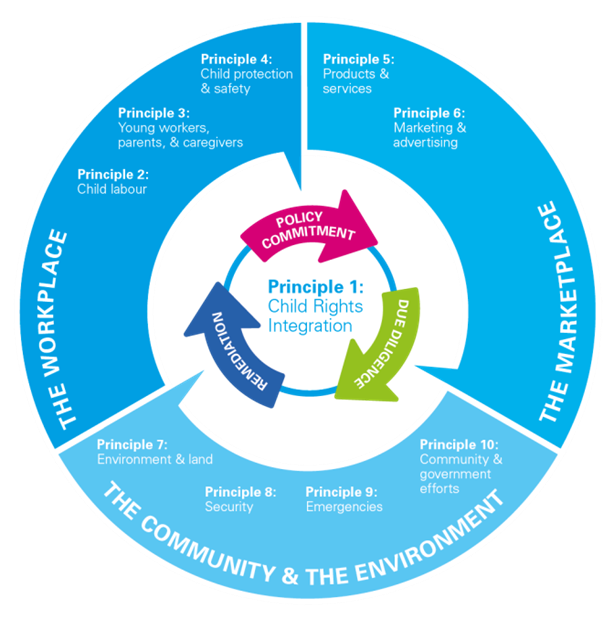
Our approach to children's rights and business
To achieve better business for children, UNICEF and UNICEF USA advocate that companies "mainstream" children's rights in the following ways.
I. Advocacy
Co-create tools for industry adoption
Engage peer companies, governments and policy makers and influencers via thought leadership
Use your convening power to bring together key children's rights stakeholders
II. Taking action on research findings
Engage in policy development
Collaborate with stakeholders to promote change
Foster digital literacy and awareness
III. Building an evidence base
Engage in and/or support country-level research
Enable child consultations
Review internal policies and processes
Opportunities for companies to join with UNICEF and UNICEF USA
Companies can join with UNICEF and UNICEF USA by:
contributing to our knowledge base through participating in, or funding, our research
helping to test tools and programs by joining pilot initiatives
understanding how their business impacts children and taking action to address or mitigate those impacts as needed
applying UNICEF-developed policies, practices and tools to help implement better business for children
championing children’s rights within industry, among peer organizations and in the public domain
Areas of focus for our Children's Rights and Business Initiative
I. Empowering Children in a Digital Age
In this video, learn strategies for empowering and protecting children in the ever-expanding, global digital environment.
We seek to ensure that children benefit from opportunities to become engaged digital citizens through information and communications technologies (ICT), and are protected from exploitation and harm in relation to the development and usage of ICT products and services.
To help promote children’s rights in a digital age, UNICEF and UNICEF USA:
offer a discussion paper series exploring the relationship between children’s rights, business and the Internet
convene companies, NGOs, academia, government and young people to gather feedback and develop best policies and practices
partner with companies to pilot good practices
View, download and share on social media our industry toolkit — a collection of resources for online service providers, game and toy brands, mobile operators, device manufacturers and other companies — on how best to protect and empower children online.
II. Child Rights in Global Supply Chains
Global supply chains impact children both directly and indirectly. Their impact extends beyond child labor; it includes how supply chains affect parental working and living conditions and the larger communities and environments in which businesses operate.
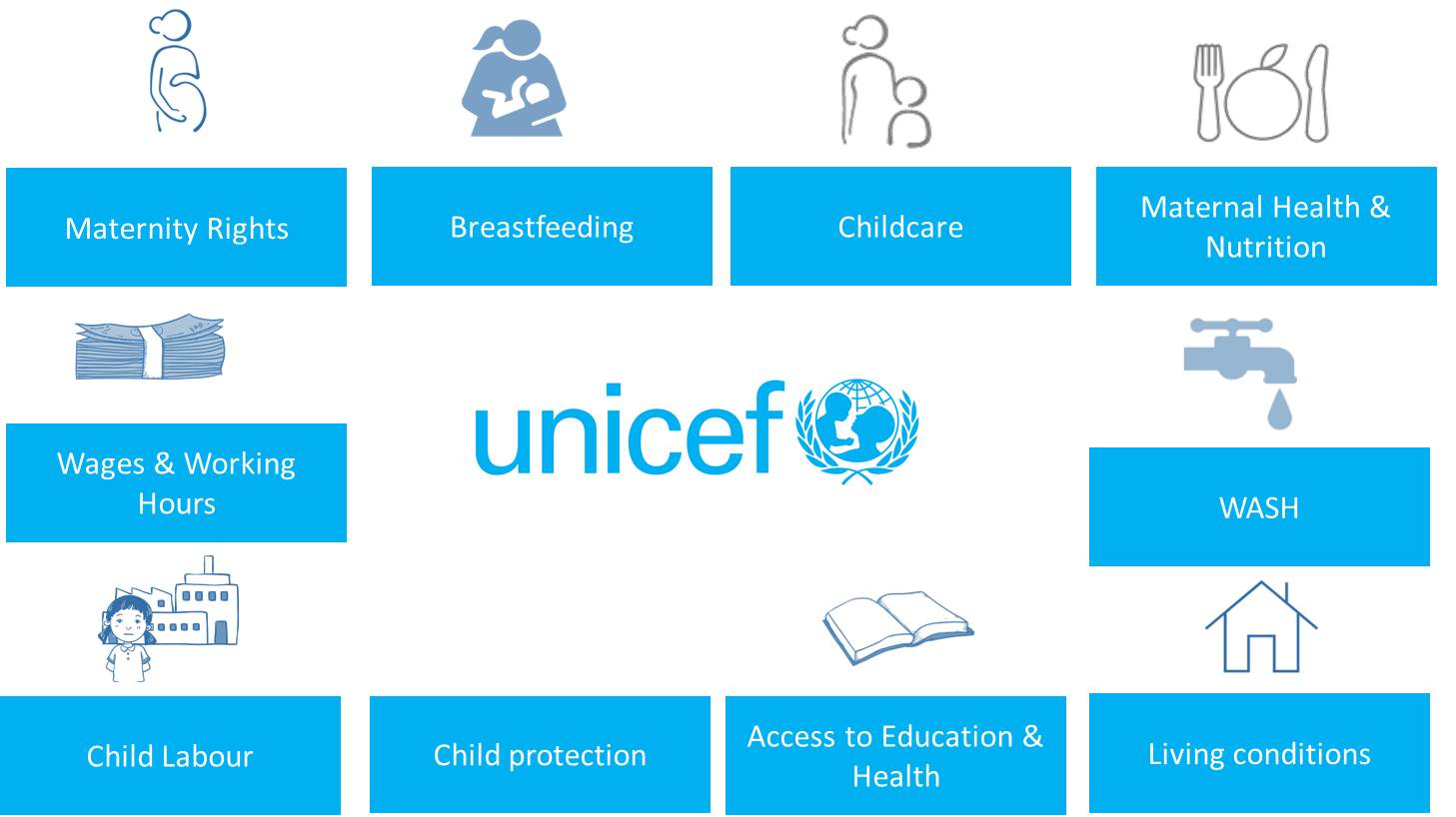
UNICEF has a number of pilot programs which aim to address the impacts of global supply chains — initiatives within the apparel and footwear industries in Bangladesh and Vietnam, palm oil production in Indonesia and Malaysia, tea farming in India and cocoa farming in Côte d'Ivoire. The focus of these programs is to research, test, and model best practices regarding:
- improving workplace conditions (e.g. promoting and supporting breastfeeding for working mothers, ensuring safe water and sufficient sanitation and hygiene (WASH), providing child-care solutions)
- supporting community interventions to ensure access to essential services for working families in cities and the countryside
- encouraging businesses to partner with local authorities to promote child rights and well-being.
- driving joint action and advocacy needed to create an enabling environment for supporting children's rights with global supply chains.
UNICEF partners with governments, NGOs, academia, thought leaders and other influencers, local manufacturers, international brands and affected communities to ensure that children's rights are being protected.
Learn about how UNICEF and companies work together to create better futures for children.



